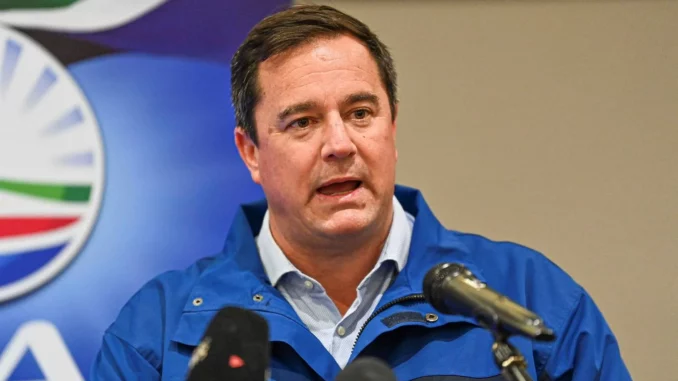
South Africa’s political landscape is in turmoil as the newly formed coalition between the African National Congress (ANC) and the Democratic Alliance (DA) faces a severe test. President Cyril Ramaphosa has accused DA leader John Steenhuisen of attempting to create a “parallel government,” violating constitutional norms.
The rift emerged weeks after the parties agreed to share power following the ANC’s failure to secure an outright majority in recent elections. The dispute centers on cabinet post allocations, with the DA demanding additional positions beyond Ramaphosa’s final offer.
Ramaphosa’s leaked letter criticizes the DA for “moving the goalposts” and condemns statements by DA federal chairperson Helen Zille as “offensive” and “condescending». The president also faces accusations of reneging on promises, particularly regarding the key Trade and Industry Ministry.
This political impasse has sent shockwaves through financial markets, with the rand plummeting against the dollar. The business sector, which had hoped for stability from this coalition, now watches anxiously as the agreement teeters on the brink of collapse.
As South Africa navigates uncharted political waters, with the ANC losing its parliamentary majority for the first time since 1994, the current crisis underscores the challenges of coalition politics in a country accustomed to single-party dominance.
